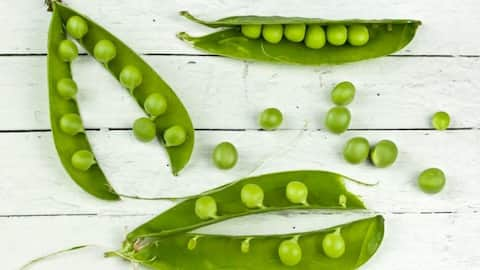Exploring the incredible benefits of consuming pea milk
What's the story
Pea milk is a plant-based milk alternative made from peas. It's known for its creamy texture and its high protein content. It is lactose-free, soy-free, nut-free, and gluten-free, making it suitable for individuals with various dietary restrictions. Additionally, it's often fortified with essential vitamins and minerals, making it a nutritious option for those looking to incorporate more plant-based foods into their diet.
Protein source
Rich in proteins
Pea milk stands out from other plant-based alternatives like almond and coconut milk due to its high protein content. With eight grams of protein per cup (240 ml), it matches the protein content of traditional cow's milk, whereas almond milk contains only one gram of protein in the same serving size. Additionally, high-protein diets helps weight management, muscle gain, and better blood sugar control.
Calcium source
Abundant in calcium
A single cup (240 ml) of pea milk supplies about 45% of the recommended daily intake (RDI) for calcium, vital for bone health, nerve function, and muscle contraction. Pea milk also features omega-3 fatty acids from algal oil, a concentrated, plant-based reservoir of omega-3 fats. It play pivotal roles in promoting heart health, immune system, supporting nervous system functionality, and contributing to brain health.
Hypoallergenic
Allergen free
Pea milk is considered hypoallergenic because it is free from common allergens such as dairy, soy, and nuts. By excluding these allergens from its composition, pea milk minimizes the risk of triggering allergic reactions, making it a safer option for individuals with food allergies or intolerance which affects over 68% of the global population. It is a safe option for those with dietary restrictions.
Calorie low
Creamy texture
Pea milk has lower-calorie alternative to cow's milk, with one cup (240 ml) of unsweetened pea milk containing just 70 calories compared to the 87 calories found in skim milk. Despite its reduced calorie content, it has a rich and creamy texture uncommon in many other plant-based milks. Pea milk's creamy texture makes it ideal for drinks like coffee and smoothies.
Low water demand
Envirionment-friendly
Pea-based milk offers superior environmental benefits compared to both cow's milk and almond milk. Dairy cows, responsible for significant methane emissions, contribute to environmental degradation along with the substantial water and energy demands of milk production. Producing pea milk emits 86% less greenhouse gases than almond milk and requires 25 times less water than cow's milk production.
Low carb
Zero sugar
Unsweetened pea milk is a low-calorie, low-carb alternative ideal for individuals on low-carb diets. With zero grams of carbs and no sugar per 240 ml serving, it differs significantly from 2% cow's milk, which contains 12.3 grams of carbs and an equal amount of lactose-derived sugar. This makes it a favorable option for those monitoring blood sugar levels, especially individuals with diabetes.
Downside
Low in D3
There are two forms: D2 from plants and D3 from animals. Vitamin D2 in pea milk may be less readily absorbed than D3 , essential for bone health and immunity. Additonally, while sunflower oil enhances the creaminess of pea milk, it lacks significant nutritional benefits. Excessive consumption of omega-6 fatty acids in sunflower oil can raise the risk of inflammation and chronic diseases.
